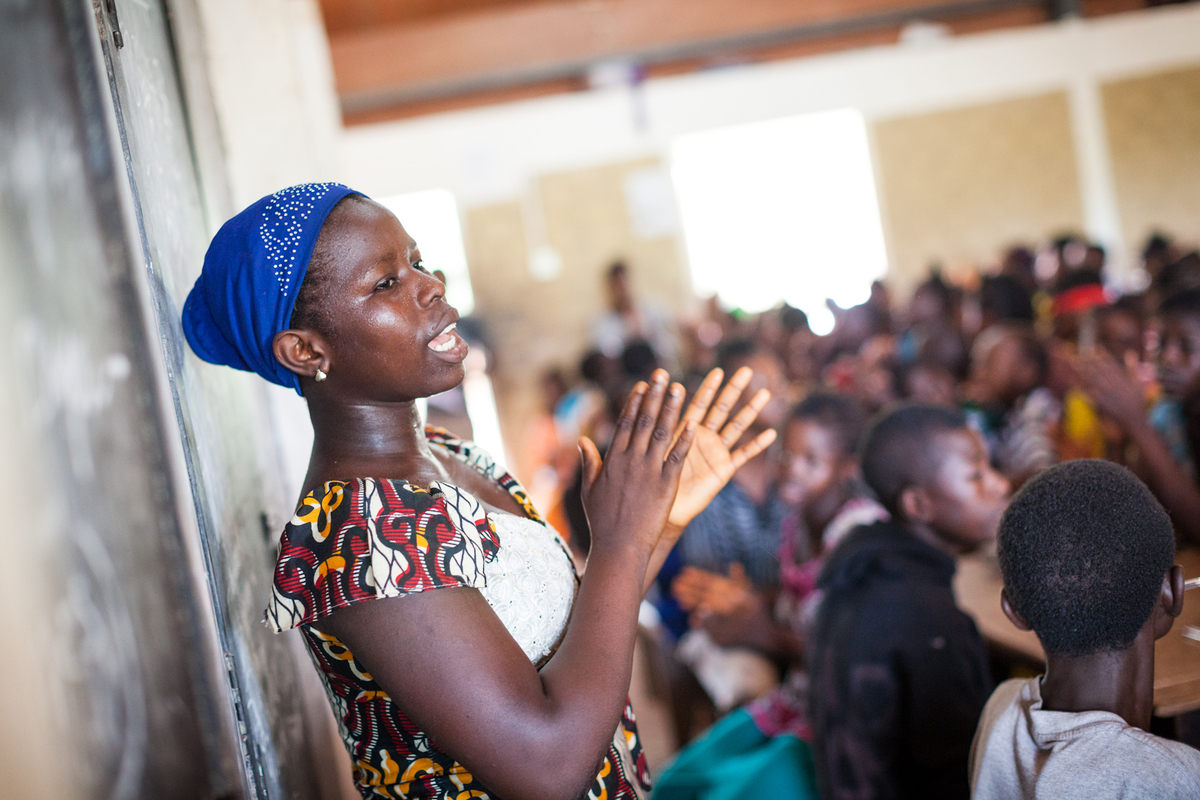IN A 21st CENTURY WORLD, TEACHER LEARNING NEVER STOPS

IN A 21st CENTURY WORLD, TEACHER LEARNING NEVER STOPS —Technology is quickly and forever changing. The moment teachers master one new piece of ed-tech, there may be something newer you need to know more about. Teachers attend professional development sessions of all kinds. If you were calling the shots, how would you change ongoing professional development for teachers in your community?
Listening to an absolutely fascinating talk by Thomas Friedman outlining his examination of the current exponential rates of change in technology over the last decade plus, I was very struck. Technology is completely, completely transforming all aspects of life in so much of the world. Putting Friedman’s thoughts alongside Paul Collier’s thinking around the ‘Bottom Billion’ at the same time though, the situation for some of us is clearly not quite in line with what he is describing. Collier explains how living standards for six of the seven billion of the global population have really improved significantly but how the bottom billion is still floundering around at the bottom of the ladder, in extreme poverty where life statistics are not changing at all.
Aligning the two ideas, I was almost overwhelmed at the realisation of just how far we, in the ‘Bottom Billion’, are being left behind. Sierra Leone currently ranks as 9th poorest country in the world according to the UN’s Human Development Index and is firmly planted in the ‘Bottom Billion’ and not participating in the technological revolution.
This being said, do I see the top priority for education and for the focus for teacher education or for life-long learning as keeping up with the latest technology? I quickly conclude that I do not. Technology can facilitate wonderful educational collaborations that break down barriers. It can open access to extraordinary resources and so on, but it is not a substitute for the basics. In a context such as Sierra Leone, there is such a low level of access to basic educational minimums that while technology may be one means of raising standards, it is unlikely to be the latest technologies that make the most difference. Lack of access to the internet is of course, in so many ways, just another way of being poor but as the most optimistic statistics rate adult literacy at 48% (World Bank, 2015), and constructive use of the internet really depends so greatly on literacy levels so while internet access could make a difference to teachers it will not make the greatest difference to the general population. Power is not readily available in large parts of the country, adding a further complication to most technological solutions so, what is the answer?
In EducAid, we do try to ensure that our teachers are always on the move, improving their subject knowledge as much as improving their pedagogical skills and philosophical understanding of different methodologies and approaches but it is rarely about the Ed-tech.
A tool (Africa-friendly smart phones with Google drive installed) first put in place out of need for data and statistics for use in applications for funding grants is now becoming a useful means for spreading and sharing learning activities and materials for staff and students but really, what is being shared could just as easily (if less environment consciously) be printed off and distributed in hard copy. What is important to us is communication and sharing ideas about how to achieve our vision of a dignified, democratic and prosperous Sierra Leone where poverty is eradicated by educated citizens.
To do this, we share materials for use in staff critical thinking clubs. We share ideas for running pro-equality club sessions: For the White Ribbon Campaign to engage boys in the fight against all forms of violence against women and for the Girl Power Group, teaching girls about their rights and responsibilities to themselves and to each other. We share lesson and assembly ideas. But, in general, for us, the most impactful ways of continuing the life-long learning is getting each member of staff to engage with their own journey towards greater professionalism: reflecting on and learning from feedback from colleagues and students; reading not only on education philosophy and teaching strategies but even more importantly, novels to improve their literacy (most Sierra Leonean teachers are teaching in their third language, having grown up in one of the 17 local languages, learned Krio in order to speak to members of a different linguistic group and only then doing their formal education in English) as well as their creativity and empathy. It is immediately noticeable when a teacher starts engaging with the realities of how to improve as a professional and learning how to provide a better-quality service to their pupils. In Sierra Leone, where attitudes towards teachers leave a lot to be desired, those who actively choose to become educators and thus to expend energy on becoming the best educators they can, are few and far between.
Once the first battle is won of engaging the teacher as a committed educator, time must then be given and structures established so that teachers can a. obtain constructive feedback and reflect on it, and b. access new ideas on different ways of teaching and approaching behaviour and relationship management and then to discuss and think through the implications for their classroom practice. In an ideal world, they will then have opportunities to support each other and collaborate in implementing their learning. It may be possible that there are high-tech platforms that can be learnt and used for this purpose or for other stages along the way but it may be that, as in EducAid, a low-tech free phone line between all colleagues facilitates this process.
If you are interested in knowing more about EducAid’s work with vulnerable young Sierra Leoneans please go to www.educaid.org.uk and if you would like to support our work please go to https://mydonate.bt.com/charities/educaidsierraleonecio